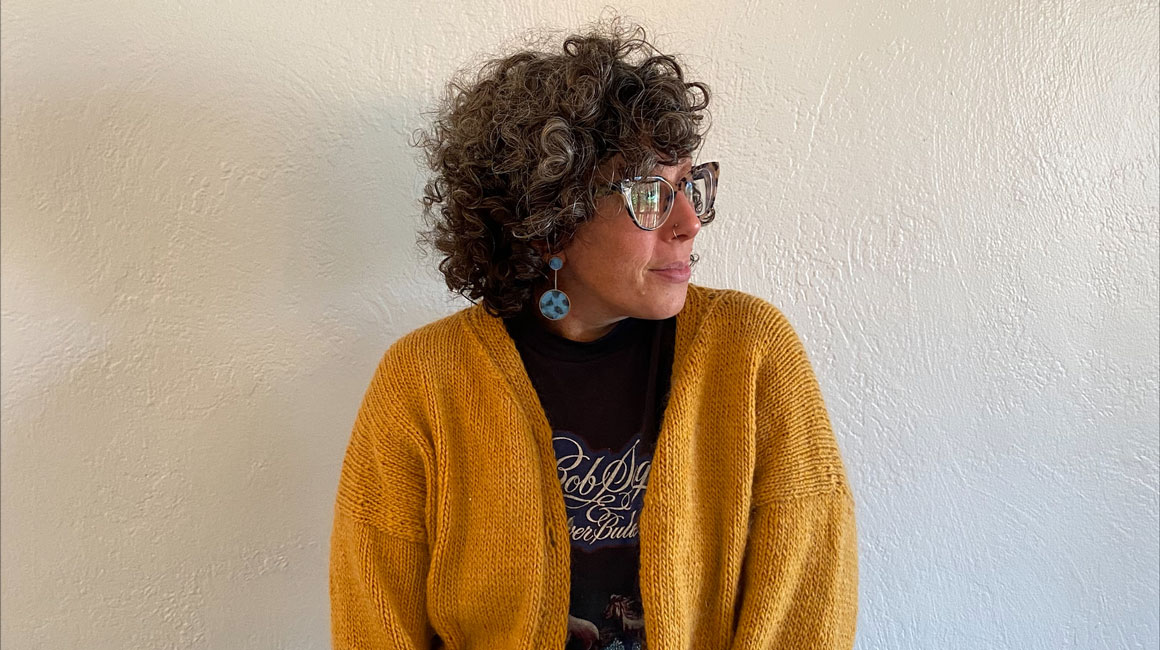Jillian Moore, a doctoral candidate in the English department, could easily buy a wool sweater and have it delivered the next day, but sometimes she prefers to knit one herself.
That’s because a handmade sweater isn’t just a sweater anymore—it’s art, and it means something about her, her life, her times and the choices she makes.
This is what compels Jillian’s research. When deciding where she would pursue her graduate research, the integration of courses affiliated with The Center for Women’s and Gender Studies was a contributing factor in her decision to attend Duquesne.
“I came here knowing that I might not fit 100 percent within the confines of a traditional English program. The WGS was a big draw for me because I could explore different pathways that are often not otherwise available."
Those pathways include the many cross-referenced courses offered through the Center. Jillian studies handmade artifacts created by 19th century women from America’s western frontier—the stories they tell can yield much more insight and truth than what has been related by their literate male counterparts who documented their version of history. As a maker and fiber artist, she was encouraged in her classes to think about how that relates to her academic persona and scholarly interest.
She also had the support of myriad faculty who are equally invested—and enthralled—by the nature of her work.
“Jillian did an independent study with me on narrative, knitting and material forms of grief,” said professor Dr. Laura Engel. “The result was an extraordinary digital project, which paired excerpts from theorists, poets and novelists with Jillian’s analysis, accompanied by images of her own knitted pieces/artworks.”
The independent study had a profound impact on Jillian’s research trajectory.
“Through this process of thinking and making, Jillian began to develop threads of what would become her dissertation project on the writings and archival objects associated with women in the West,” Dr. Engel said.
It has been quite a task, weaving together the threads of Jillian’s research. The WGS has helped her make sense of the baskets, quilts, journals and pots, and the stories they tell about what life was really about for those 19th century women.
“I was having a hard time figuring out how I wanted to meld all these ideas I had,” Jillian said. “WGS helped me think about how to talk about these interesting concepts that I want to thread together.”
Much like that handmade sweater, Jillian’s research will have more meaning for all her efforts.
“Jillian’s willingness to take risks with her ideas as well as her ability to employ a variety of materials (theoretical, literary, and historical) in crafting her arguments, signals her potential to make truly original contributions to women’s history, American Studies and material culture studies,” Dr. Engel said.
News Information
Departments, Centers, and Offices
Published
May 10, 2023


